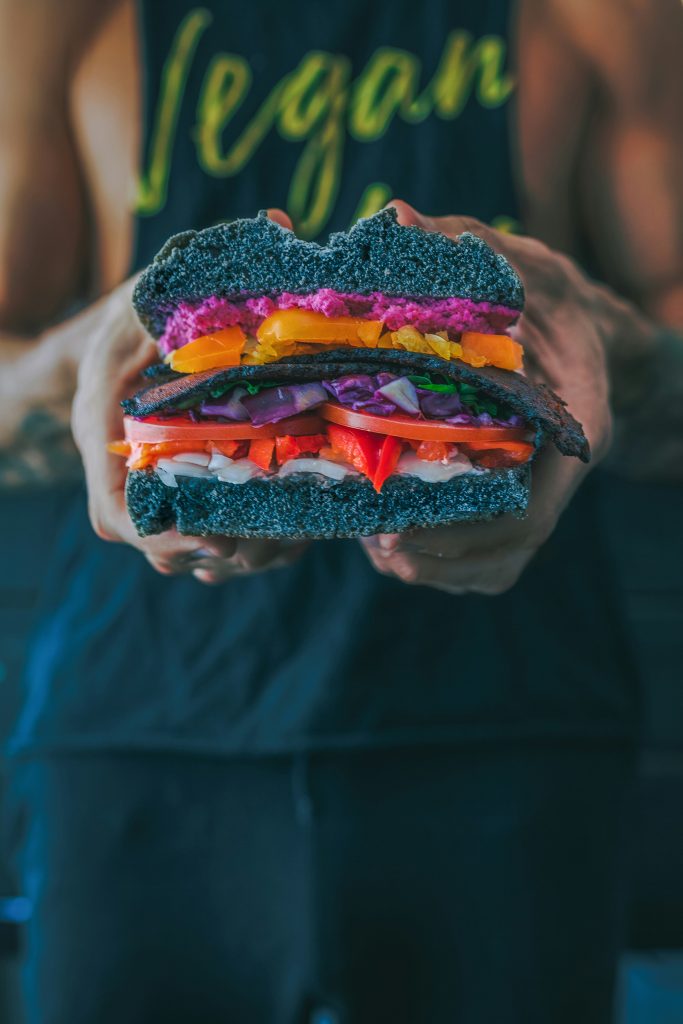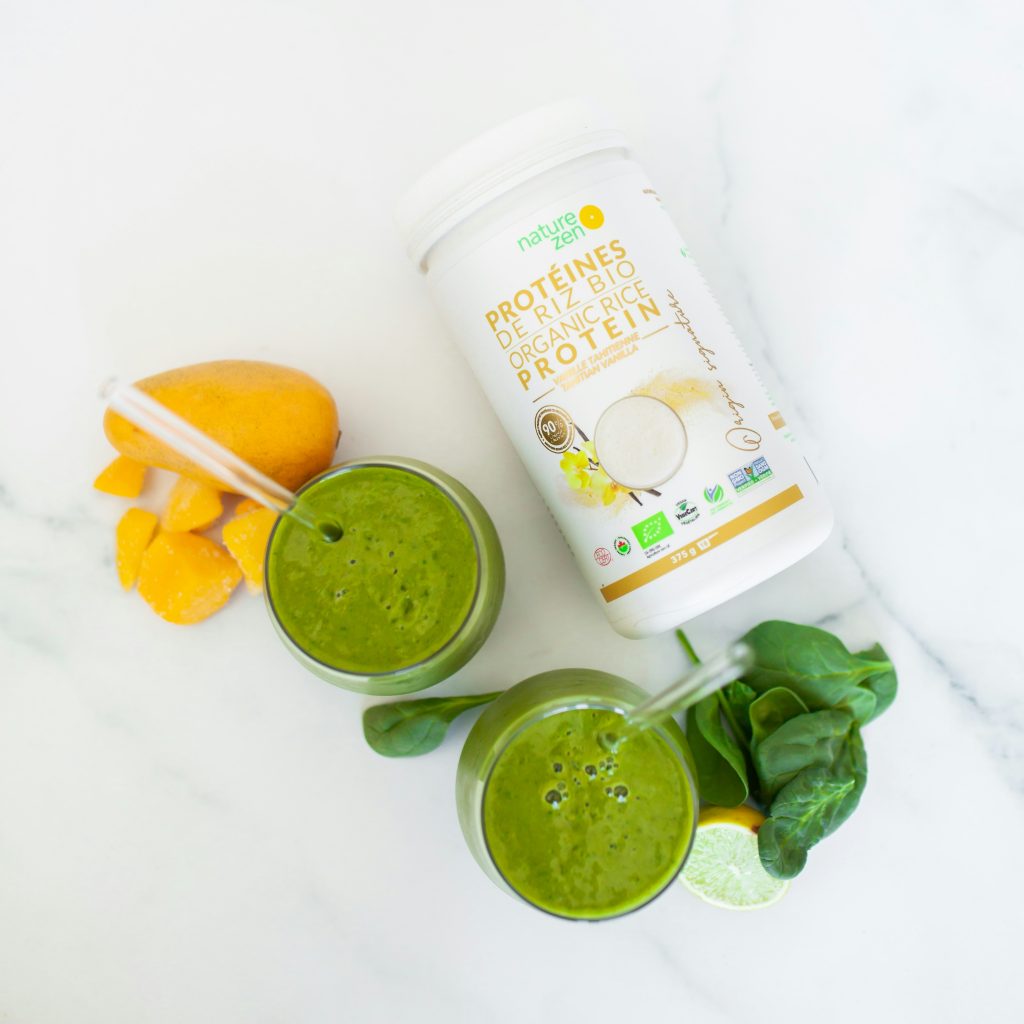Ad Blocker Detected
Our website is made possible by displaying online advertisements to our visitors. Please consider supporting us by disabling your ad blocker.
Hey there! Are you a vegan looking to boost your protein intake? Well, we’ve got just the article for you. In “Protein Supplements For Vegans,” we take a closer look at the world of protein supplements specifically designed for those following a vegan lifestyle. Whether you’re an athlete, a fitness enthusiast, or simply looking to maintain a balanced diet, we’ll explore the various options available to help you meet your protein needs without compromising on your vegan values. Let’s dive in and discover the fantastic plant-based protein supplements waiting for you!

This image is property of images.unsplash.com.
Why Protein Supplements Are Important for Vegans
The Challenges of Getting Enough Protein on a Vegan Diet
As a vegan, you have chosen to follow a plant-based lifestyle and embrace the benefits it offers for your health and the environment. However, one of the challenges you may face on a vegan diet is getting enough protein. Unlike non-vegans, who can easily obtain protein from animal sources, vegans rely solely on plant-based sources for their protein intake. While it is possible to meet your protein needs through a well-planned vegan diet, it can be more difficult and requires careful attention to ensure you are consuming adequate amounts of this essential macronutrient.
Understanding the Role of Protein in the Body
Protein is crucial for the proper functioning of your body. It plays a vital role in various biological processes, such as building and repairing tissues, producing enzymes and hormones, supporting immune function, and providing energy. Protein is made up of amino acids, often referred to as the building blocks of protein. There are 20 different amino acids, and your body needs all of them to function optimally. However, nine of these amino acids are considered essential, meaning your body cannot produce them and must obtain them through your diet.
Benefits of Protein Supplements for Vegans
Protein supplements can be a valuable addition to a vegan diet, helping to bridge the protein gap, especially for those who are physically active or have higher protein requirements. By incorporating protein supplements into your daily routine, you can ensure you are meeting your protein needs and enjoy the following benefits:
-
Convenient and Time-Saving: Protein supplements provide a quick and convenient way to increase your protein intake without the need for extensive meal planning or preparation.
-
Complete Protein Source: Some protein supplements, such as soy protein isolate, contain all nine essential amino acids, making them a complete protein source that can support optimal health and function.
-
Variety of Options: There is a wide range of protein supplements available for vegans, each with its unique taste, texture, and nutritional profile, providing you with plenty of options to choose from based on your preferences and dietary needs.
-
Support for Muscle Building and Recovery: Protein is essential for muscle growth and repair. When combined with regular exercise, protein supplements can aid in building and maintaining lean muscle mass, facilitating faster recovery from workouts, and preventing muscle loss.
-
Weight Management: Protein is known to promote satiety, helping you feel fuller for longer periods and potentially aiding in weight management efforts. Protein supplements can be a valuable tool in controlling hunger and maintaining a healthy weight.
-
Enhanced Exercise Performance: Adequate protein intake is crucial for optimizing exercise performance. Protein supplements can provide a convenient way to fuel your workouts and support your body’s recovery and adaptation to physical activity.
-
Improved Overall Health: Protein is involved in various bodily functions, including immune system support, hormone production, and the maintenance of healthy skin, hair, and nails. By meeting your protein needs, you can contribute to your overall health and wellbeing.
Types of Protein Supplements for Vegans
When it comes to choosing protein supplements as a vegan, you have numerous options to explore. Here are some popular types of protein supplements that are suitable for vegans:
Soy Protein Isolate
Soy protein isolate is derived from soybeans and is considered a complete protein source, as it contains all the essential amino acids. It is a versatile option that can be easily incorporated into smoothies, baked goods, or used as a standalone supplement.
Pea Protein
Pea protein is made from yellow peas and is a popular choice among vegans due to its high protein content and easy digestibility. It is often free of common allergens like gluten, dairy, and soy, making it suitable for those with dietary restrictions.
Hemp Protein
Hemp protein is derived from the seeds of the cannabis plant. It is a rich source of protein and also provides essential fatty acids, vitamins, and minerals. It has a slightly nutty flavor and can be added to smoothies, oatmeal, or baked goods.
Rice Protein
Rice protein is made from brown or white rice and is a hypoallergenic option for vegans with food sensitivities. It is easily digestible and can be used as a standalone protein powder or added to recipes for an extra protein boost.
Mung Bean Protein
Mung bean protein is derived from mung beans, which are commonly used in Asian cuisine. It is a plant-based protein option that is high in protein while being low in fat and carbohydrates. Mung bean protein can be added to smoothies, soups, or used in baking.
Quinoa Protein
Quinoa protein is derived from the seeds of the quinoa plant. It is a complete protein source and provides essential amino acids. Quinoa protein is often used as a supplement powder, as well as an ingredient in protein bars and shakes.
Chia Seed Protein
Chia seed protein is made from ground chia seeds. It is a good source of protein, fiber, and omega-3 fatty acids. Chia seed protein can be added to smoothies, yogurt, or used as an egg replacement in baking recipes.
Pumpkin Seed Protein
Pumpkin seed protein is made from ground pumpkin seeds and is a rich source of protein, iron, and magnesium. It has a nutty flavor and can be added to smoothies, oatmeal, or used to enhance the protein content of energy balls or bars.
Sunflower Seed Protein
Sunflower seed protein is derived from sunflower seeds and is an excellent source of protein, as well as vitamins and minerals like vitamin E, zinc, and selenium. It can be used in smoothies, as a topping for salads, or incorporated into baking recipes.
Mixed Plant Protein
Mixed plant protein blends combine different plant-based protein sources, providing a diverse amino acid profile and maximizing the nutritional benefits. These blends often contain a combination of proteins such as pea, rice, hemp, or chia seed protein.
Considerations When Choosing Protein Supplements for Vegans
When selecting protein supplements for your vegan lifestyle, several factors should be considered:
Allergies and Dietary Restrictions
It is essential to be aware of any allergies or dietary restrictions you may have when choosing protein supplements. Some common allergens found in protein powders include soy, gluten, dairy, and tree nuts. Reading product labels and ingredient lists carefully can help you find supplements that are free from allergens that may cause adverse reactions.
Digestibility and Absorption
Different protein sources have varying degrees of digestibility and absorption rates in the body. Some protein supplements, such as pea protein, may be easier to digest for individuals with sensitive stomachs or digestive issues. Considering your personal digestive comfort is essential when selecting a protein supplement.
Taste and Texture
The taste and texture of protein supplements can vary significantly depending on the source and how they are processed. Experimenting with different flavors and brands can help you find a protein supplement that you enjoy and look forward to consuming daily.
Quality and Purity
Opting for high-quality protein supplements ensures that you are getting a product that is free from contaminants, heavy metals, or unnecessary additives. Look for reputable brands that prioritize quality and purity in their manufacturing practices and undergo third-party testing for quality assurance.
Certifications and Labels
Certifications and labels, such as USDA organic, non-GMO, or vegan certifications, can provide reassurance that the protein supplement meets specific quality standards. These certifications ensure that the product is made without the use of genetic engineering, pesticides, or animal-derived ingredients.
Price and Value
Consider your budget when selecting protein supplements. While some options may be more expensive, it’s important to assess the overall value of the product, taking into account factors such as quality, purity, and nutritional content.
Personal Preferences
Ultimately, personal preferences play a significant role in choosing protein supplements. Factors such as taste, texture, and cooking versatility should align with your preferences and lifestyle, ensuring that you will remain consistent in your protein intake.
How to Incorporate Protein Supplements into a Vegan Diet
Once you have chosen the right protein supplement for your needs and preferences, it is important to know how to incorporate it effectively into your vegan diet. Here are some tips for doing so:
Finding the Right Dosage
Determining the appropriate dosage of protein supplements depends on various factors, including your body weight, activity level, and individual protein requirements. Consult a healthcare professional or a registered dietitian to help determine your specific protein needs and guide you in finding the optimal dosage for your goals.
Timing for Maximum Benefits
Timing your protein supplement intake can enhance its benefits. Consuming protein supplements within an hour of finishing a workout can support muscle recovery and growth. However, spreading your protein intake throughout the day is also beneficial, as it ensures a steady supply of amino acids for your body’s needs.
Combining Protein Supplements with Whole Foods
While protein supplements can play a valuable role in meeting your protein needs, they should not replace whole-food sources of protein in your diet. Incorporating a variety of plant-based protein sources like legumes, whole grains, nuts, and seeds alongside your supplements will provide you with a broader spectrum of nutrients and health benefits.
Meal and Snack Ideas with Protein Supplements
There are numerous creative ways to incorporate protein supplements into your meals and snacks. Here are a few ideas:
- Start your day with a protein-rich smoothie by blending your favorite protein powder with fruits, leafy greens, and plant-based milk.
- Add protein powder to your pancake or waffle batter to boost its nutritional content.
- Mix protein powder into a bowl of oatmeal or chia pudding for a protein-packed breakfast.
- Make homemade protein bars or energy balls using protein powder, nuts, seeds, and dried fruits.
- Sprinkle protein powder over a salad to amp up its protein content.
- Use protein powder in baking recipes as a substitute for flour to increase protein content in muffins, cookies, or bread.
Potential Benefits of Protein Supplements for Vegans
The incorporation of protein supplements into a vegan diet can bring about several potential benefits:
Muscle Building and Recovery
Protein is essential for muscle growth and repair. Protein supplements can aid in building and maintaining lean muscle mass, helping you achieve your fitness goals and recover faster from intense workouts.
Weight Management
Protein is known to promote satiety, aiding in weight management efforts by helping you feel full and satisfied. Protein supplements can be a valuable tool in controlling hunger cravings and supporting a healthy weight.
Improved Exercise Performance
Adequate protein intake is crucial for optimizing exercise performance. Protein supplements can provide the necessary fueling and recovery support required for physical activity, helping you perform better and enhance your fitness levels.
Enhanced Overall Health
Meeting your protein needs through supplements can contribute to your overall health and wellbeing. Protein plays a vital role in various bodily functions, including immune system support, hormone production, and the maintenance of healthy skin, hair, and nails.
Potential Risks and Side Effects of Protein Supplements for Vegans
While protein supplements offer numerous benefits, it’s important to be aware of potential risks and side effects:
Allergic Reactions
Some individuals may experience allergic reactions or intolerances to certain ingredients commonly found in protein supplements, such as soy or nuts. If you have known allergies or sensitivities, carefully read product labels and choose supplements that are free from potential allergens.
Digestive Issues
Certain protein supplements, particularly those made from legumes like soy or peas, may cause digestive discomfort in some individuals. This can include symptoms like bloating, gas, or an upset stomach. If you experience these issues, consider trying a different protein source or opting for a blend that combines multiple plant proteins.
Impacts on Kidney Function
Excessive protein intake, whether from whole foods or supplements, can put a strain on the kidneys. Individuals with pre-existing kidney conditions should consult with a healthcare professional before significantly increasing their protein intake.
Interactions with Medications
If you are taking any medications, it’s important to consult with your healthcare provider to ensure there are no potential interactions between the medications and protein supplements you plan to take.
Overconsumption Risks
While protein is essential for optimal health, it is possible to consume too much. Excessive protein intake can result in imbalances in other nutrients, such as carbohydrates or fats, and may lead to health issues. Moderation is key, and it’s essential to follow recommended dosages and guidelines.
Research and Studies on Protein Supplements for Vegans
Numerous research studies have explored the benefits and effectiveness of protein supplements for vegans. Here are some important findings:
Scientific Evidence Supporting the Use of Protein Supplements for Vegans
Scientific literature consistently supports the use of protein supplements for vegans as a convenient and effective way to meet their protein requirements. Studies have shown that protein supplements can enhance muscle protein synthesis, promote muscle recovery, and support muscle growth, especially when combined with resistance exercise.
Comparisons of Different Protein Sources for Vegans
Research has compared different plant-based protein sources to determine their efficacy and nutritional profiles. Studies have shown that various protein sources, including soy, pea, and rice protein, can provide similar benefits and fulfill protein requirements when properly incorporated into a well-balanced vegan diet.
Long-Term Effects of Protein Supplementation in Vegan Diets
Long-term studies on the impact of protein supplementation in vegan diets have shown positive outcomes. These studies have demonstrated that protein supplements can contribute to long-term muscle mass preservation, maintenance of a healthy body weight, and overall nutritional adequacy in individuals following a vegan lifestyle.
Guidelines for Safe and Effective Use of Protein Supplements for Vegans
To ensure safe and effective use of protein supplements, consider the following guidelines:
Consulting with a Healthcare Professional
Before incorporating protein supplements into your diet, it is recommended to consult with a healthcare professional or registered dietitian who can assess your specific needs, provide personalized recommendations, and monitor your progress.
Reading Product Labels and Ingredients
Carefully read product labels and ingredient lists to ensure that the protein supplement aligns with your dietary needs and preferences. Look for products that contain minimal additives, artificial sweeteners, or unnecessary fillers.
Following Recommended Dosages
Follow the recommended dosages provided by the manufacturer or as advised by a healthcare professional. It is crucial not to exceed the recommended daily intake of protein supplements, as excessive protein intake can result in imbalances and potential health risks.
Monitoring Progress and Adjustments
Monitor your progress and adjust your protein intake as needed. Regularly reassessing your protein needs, consulting with healthcare professionals or registered dietitians, and making adjustments based on your goals and progress can help optimize the benefits of protein supplements.
Common Myths and Misconceptions About Protein Supplements for Vegans
There are several myths and misconceptions surrounding protein supplements for vegans. Let’s debunk a few of them:
Protein Deficiency is Rare in Vegans
Contrary to popular belief, protein deficiency is rare among vegans who consume a well-planned and balanced diet. By incorporating a variety of plant-based protein sources, vegans can meet their protein needs and achieve optimal health. However, protein supplements can be a helpful tool for vegans with higher protein requirements or those who struggle to meet their needs through whole foods alone.
Protein from Plant Sources is Incomplete
Another common myth is that protein from plant sources is incomplete and does not provide all the essential amino acids. While it is true that some plant-based protein sources may be lower in certain essential amino acids compared to animal sources, it is entirely possible to obtain all the necessary amino acids by combining different plant-based protein sources or using complete protein supplements.
Protein Supplements Are Only for Athletes
Protein supplements are often associated with athletes and fitness enthusiasts. However, they can be beneficial for anyone following a vegan diet, regardless of their activity level. Protein supplements can support overall health, including muscle recovery, weight management, and enhanced exercise performance, making them suitable for individuals with different lifestyles and fitness goals.
Protein Supplements Are Unnatural or Unsafe
Protein supplements are produced from natural plant-based sources and undergo various processing methods to create a concentrated protein powder. When sourced from reputable companies and consumed in moderation, protein supplements are considered safe and can be a valuable addition to a vegan diet. As with any dietary supplement, it is crucial to choose high-quality products and follow recommended dosages.

This image is property of images.unsplash.com.
Can Protein and Fiber Supplements Be Combined for a Vegan Diet?
Yes, protein and fiber supplements can be combined for a vegan diet. It’s important for vegans to ensure they’re getting enough of both nutrients. By incorporating a variety of plant-based protein sources and learning about fiber supplements, vegans can support their overall health and well-being.
Conclusion
Protein supplements can play a significant role in helping vegans meet their protein needs and enjoy the numerous benefits associated with adequate protein intake. By understanding the challenges of getting enough protein on a vegan diet, exploring the different types of protein supplements available, and considering important factors when making your selection, you can incorporate protein supplements safely and effectively into your vegan lifestyle. Remember to consult with a healthcare professional or registered dietitian, follow recommended dosages, and prioritize a well-balanced and diverse diet that includes both protein supplements and whole-food sources of protein. With the right approach, protein supplements can support your overall health, fitness goals, and enjoyment of a vegan lifestyle.

This image is property of images.unsplash.com.


